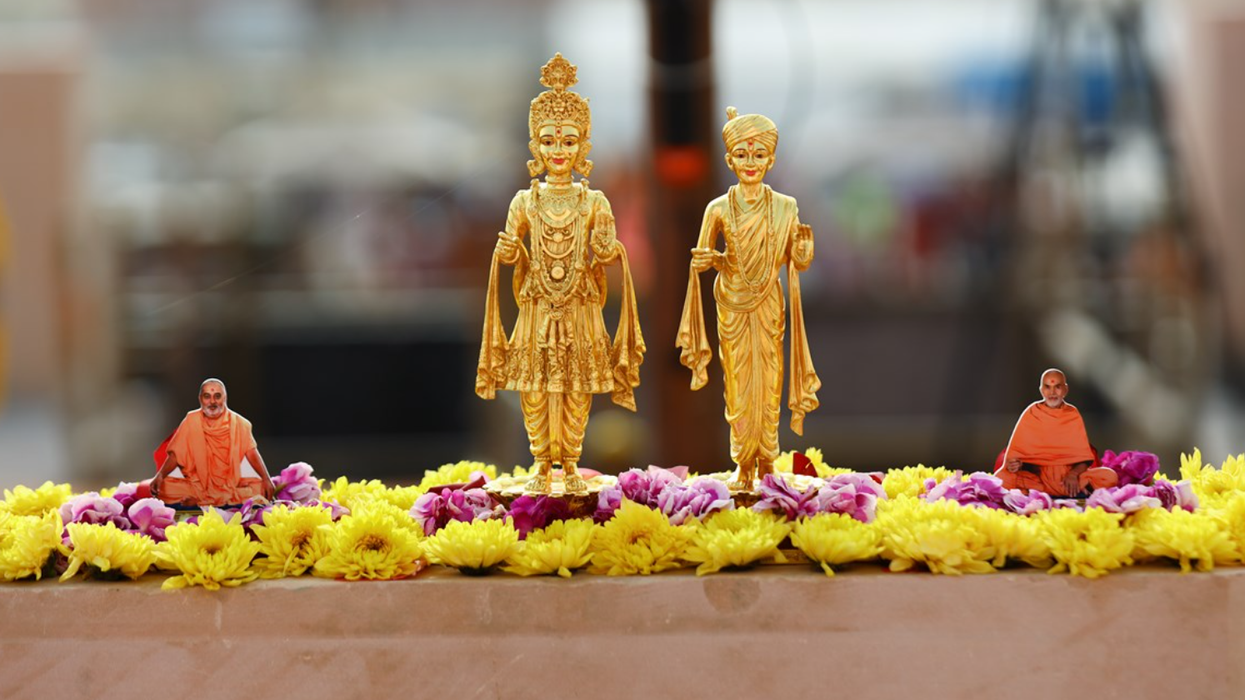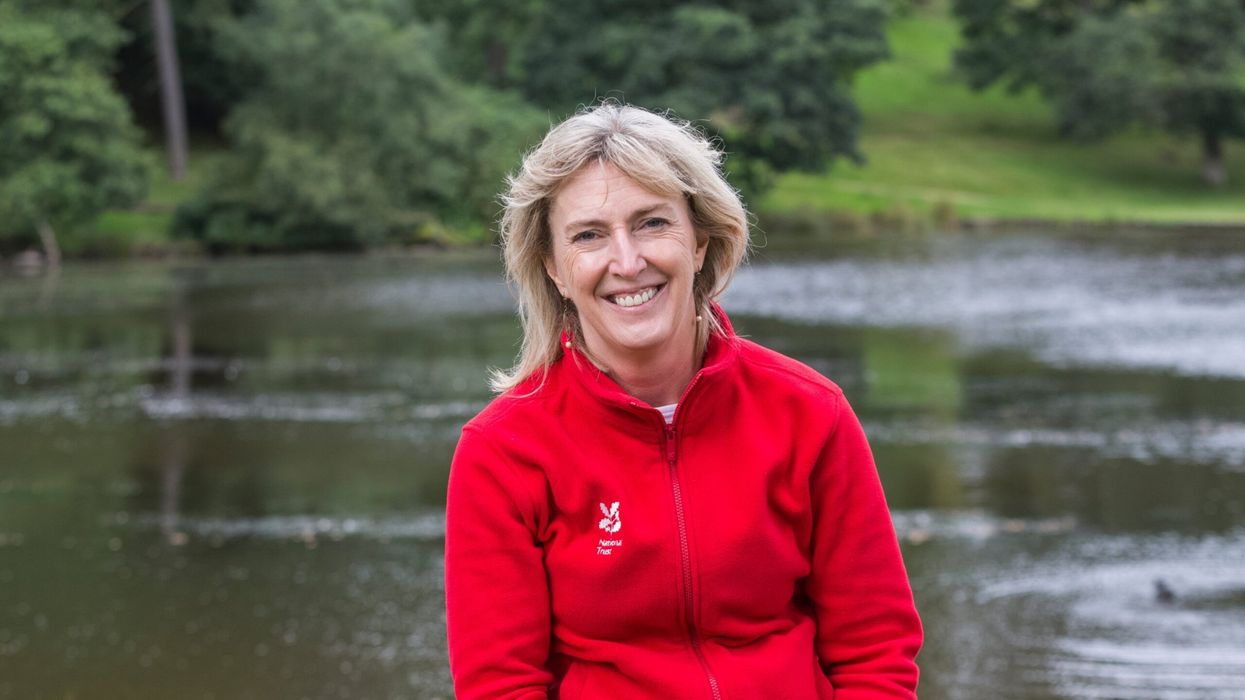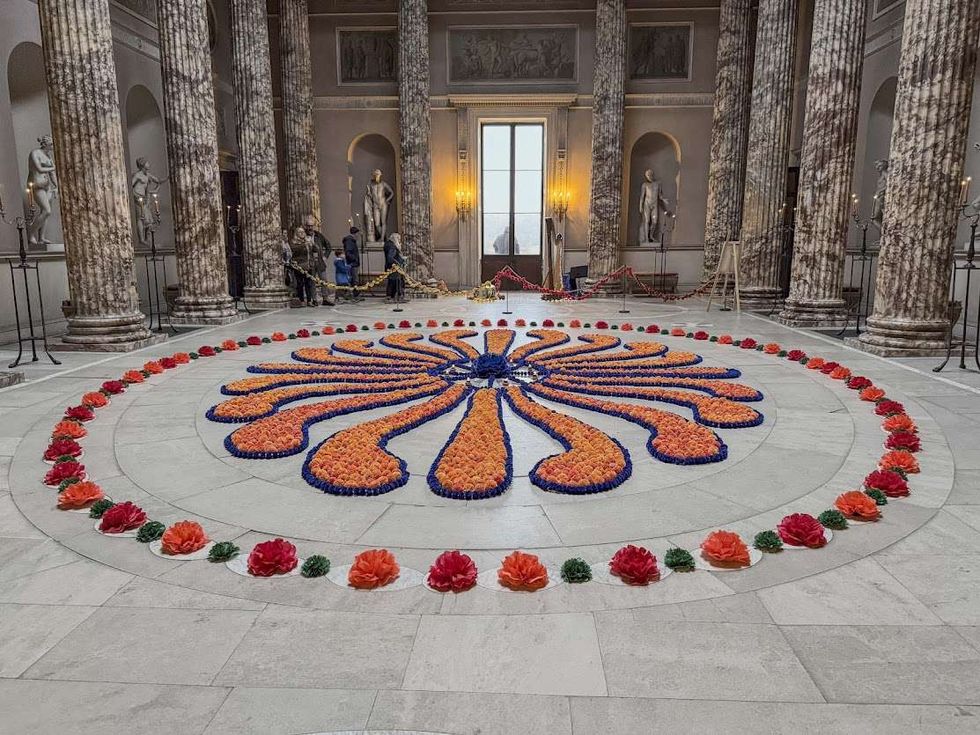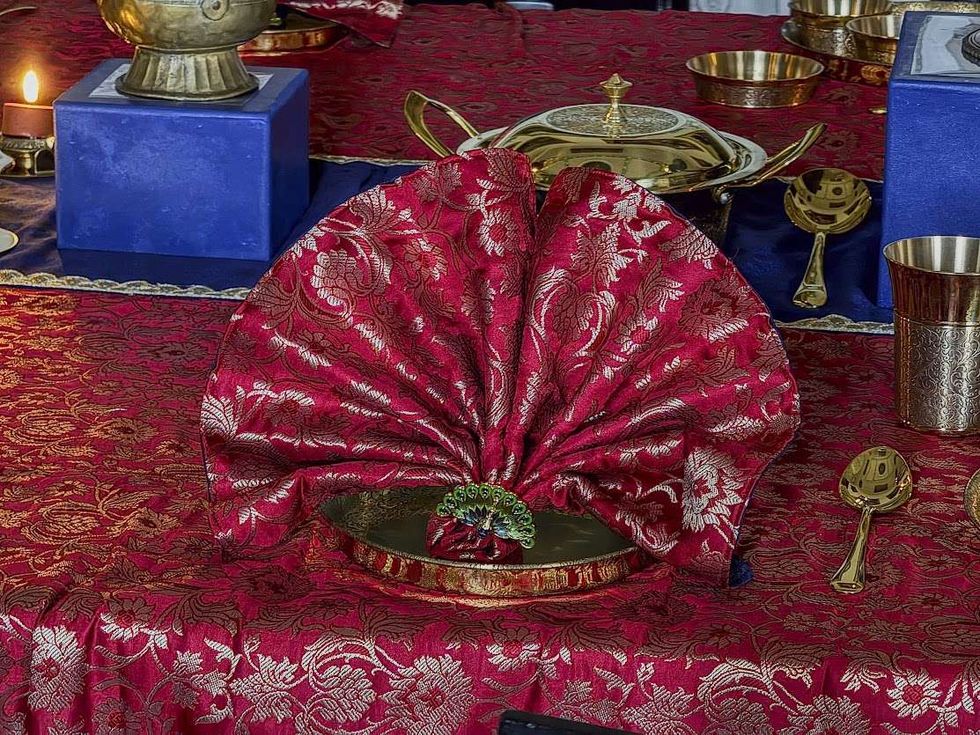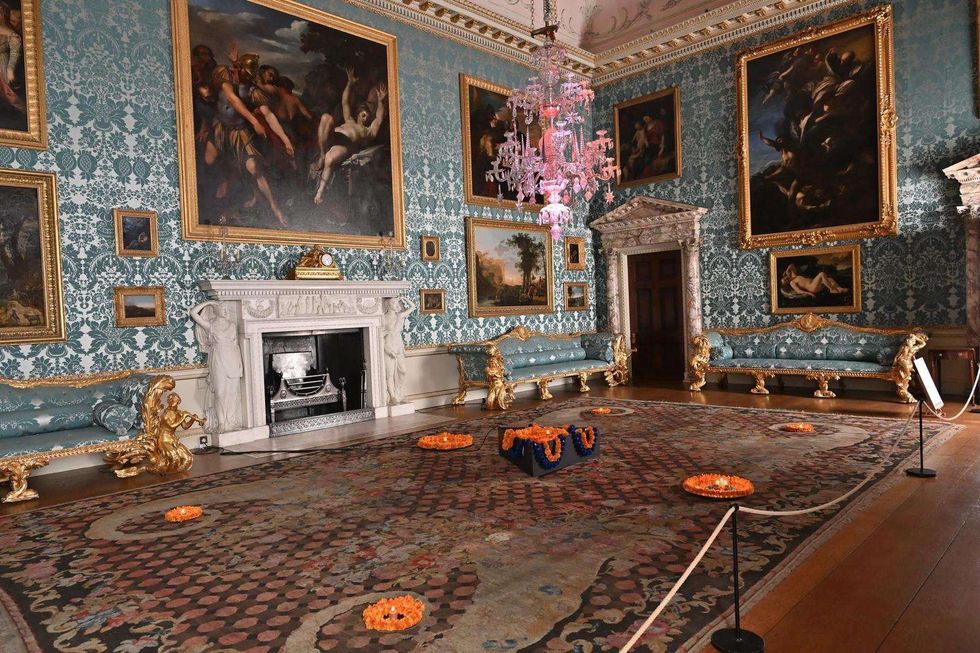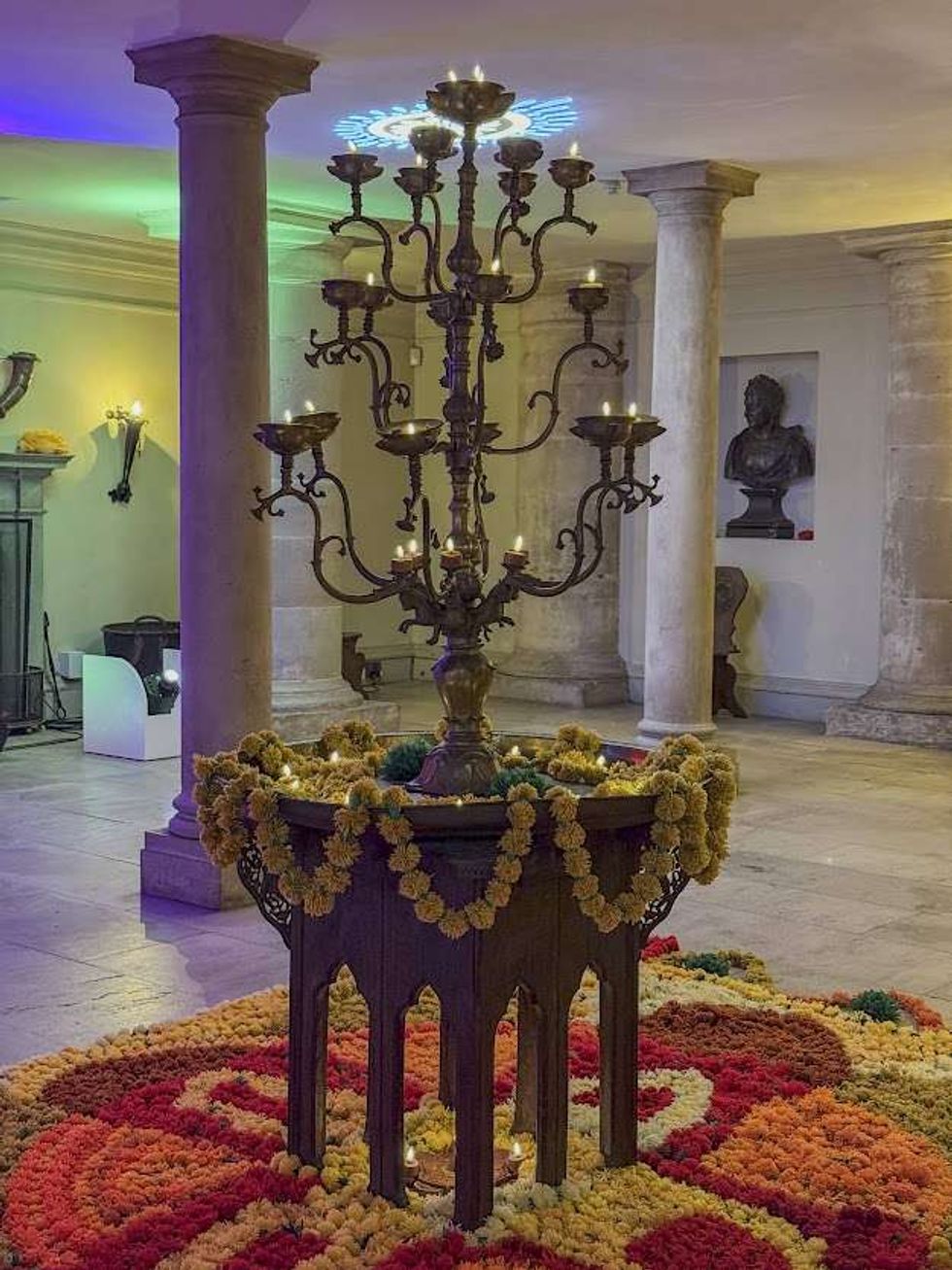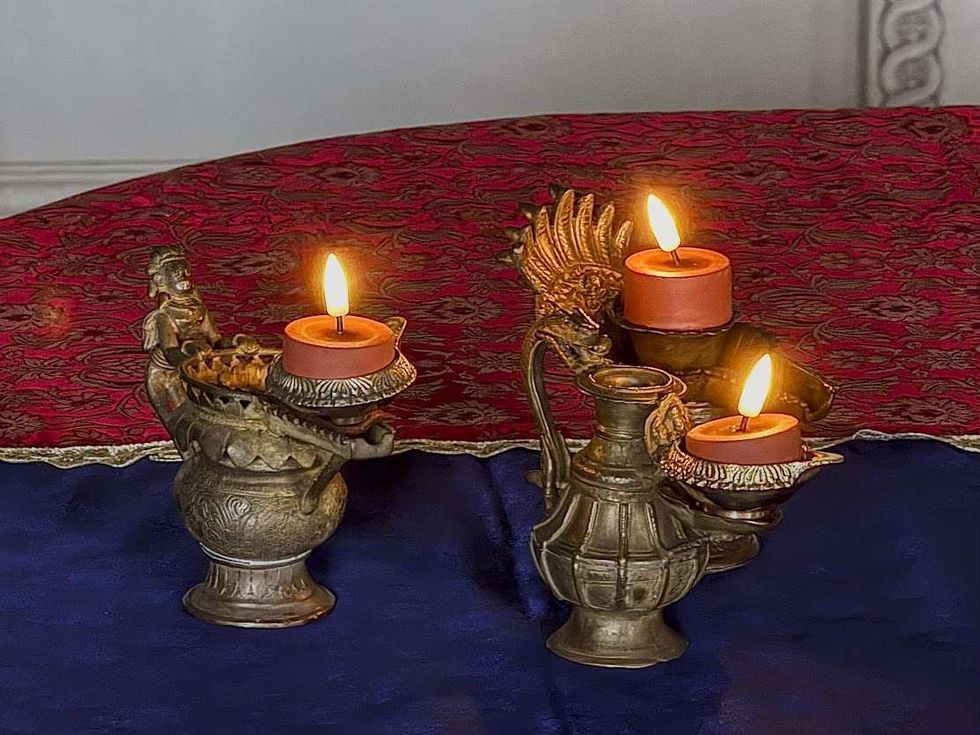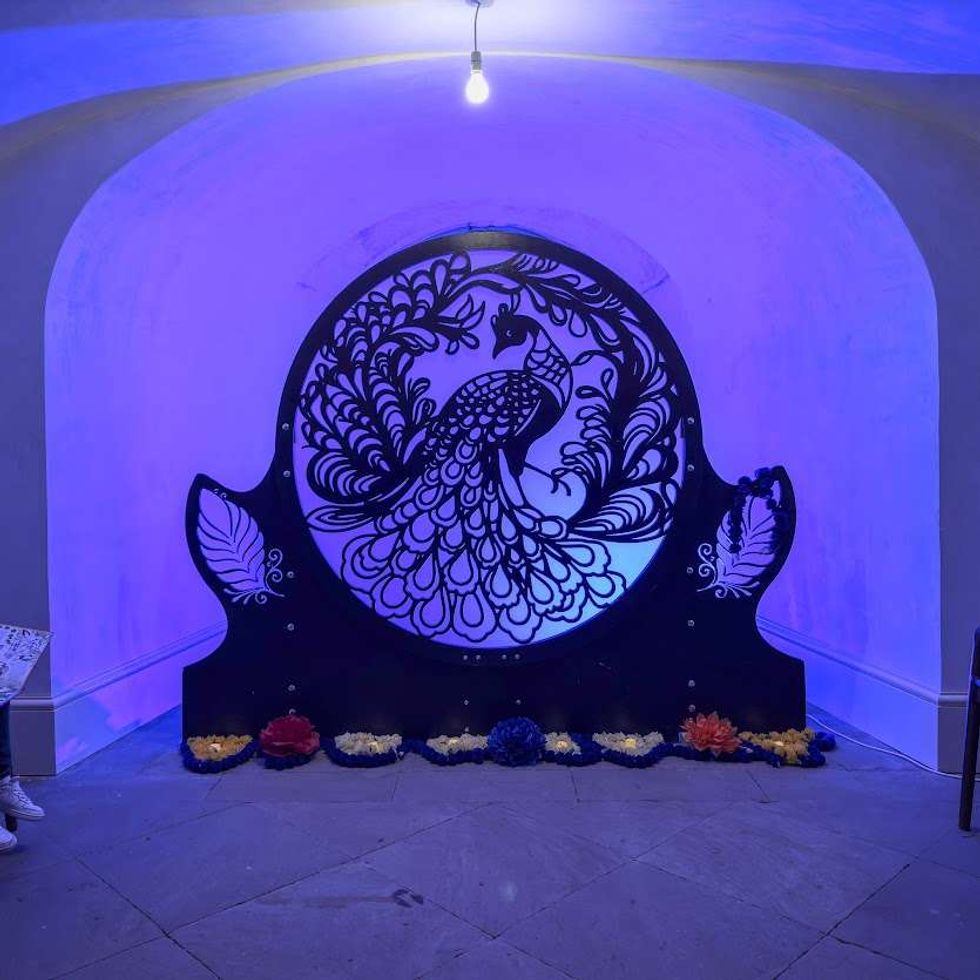IN the heart of Abu Dhabi, amid the modern skyline of the United Arab Emirates (UAE), stands the BAPS Hindu Mandir, a remarkable testament to the harmonious coexistence of diverse cultures in a globalised world. Beyond its architectural grandeur and spiritual significance, this temple holds a unique place in history, symbolising a bridge between ancient traditions and the cosmopolitan landscape of the Middle East.
The temple’s construction, inaugurated in 2019, marked a historic moment in the region, with it being the first traditional Hindu stone temple in west Asia, and the first Hindu temple in the UAE capital city.
And the excitement is palpable for Tushar Patni, president of Gujarati Samaj Abu Dhabi, whose family has been residing in the country for the last 55 years.
“For us, this is a completely amazing situation where we have our own temple for the first time in so many years. Dubai had a small temple, but Abu Dhabi never had any temples. So this is very important for us,” he says.
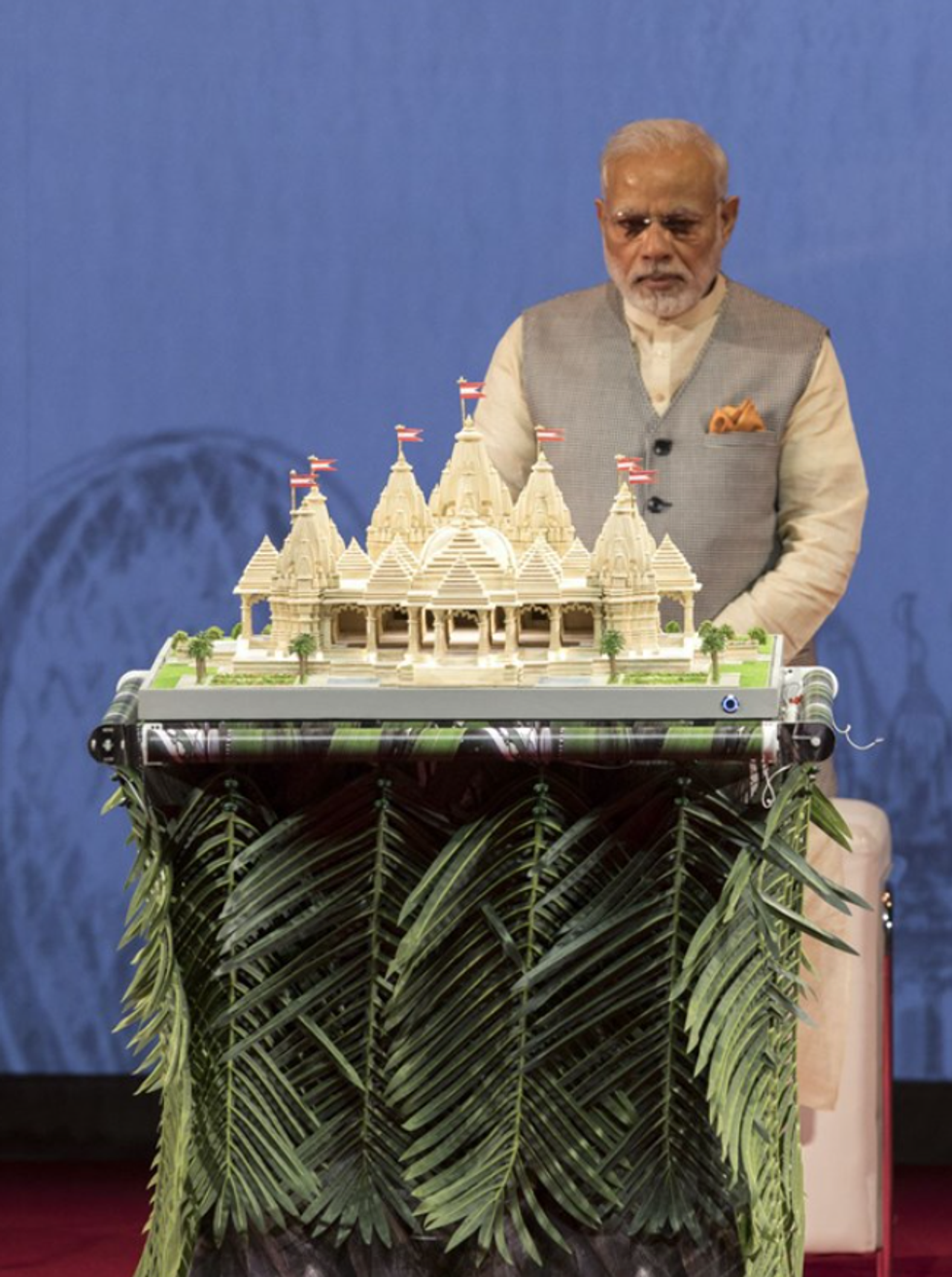
“And considering this country, few years back, not even allowed to carry any pictures, magazines, books or murtis of gods and goddesses, they used to take it from the airport itself, this is a very big, fabulous event that is coming up for us,” Patni, who is the managing director of Ajanta Jewellers, one of Abu Dhabi’s oldest jewellers, added.
Patni commends the inclusive approach taken by the BAPS in the design of the temple, which he describes as nothing short of a ‘marvel’.
“I’ve had this opportunity to see the temple closely inside, even while it was being made. We have covered every corner of the temple and it’s amazing. This is going to be something different,” he says.
“It is like a sanatan mandir. The main part of the temple, it’s for the Swaminarayan Bhagwan. At the same time, under the same roof, all the other gods and goddesses are given an important place. So Krishna will be there, Ayyappa will be there, Ganapati will be there, and all the other gods which people follow. I think that is the best part of the design.”
The construction of the temple has seen the community getting involved in novel ways, like the brick puja, which was open to all, irrespective of the religion.
“Everybody has played a small part, at least who had ever gone to the temple site, they were allowed to lay a small piece of a brick,” Patni explains. “The brick puja was specially organised by the BAPS, and that brick particularly will be part of the construction. They had a small fee for that, but that is just a contribution. So even if I’m putting one brick, I’ll feel important where my one brick is there. It’s a historical thing that it’ll be there forever. That one brick of yours indeed there for life.”
The BAPS has extended this to the opening ceremony of the temple, offering those who donate AED 25,000 (£5380) an opportunity to take part in the havan.
Patni says the authorities have given a free hand to the temple committee from the day one, because ‘they knew exactly what they were doing’.
“They were being explained everything at every step, and they’re very impressed. There is a certain team of people who actually went to India to see and visit two or three of the BAPS temples. They were shown the concept and the whole thing that they’re making, and they said, ‘now, this is exactly what we want to make in Abu Dhabi’. And they were very happy to see the design, the way it’s made and, you know, handmade carvings are something new for them.”
Cultural integration
The establishment of the temple, for which land was given by the then crown prince of Abu Dhabi HH Sheikh Mohammed bin Zayed Al Nahyan, now president of the UAE, after Indian prime minister Narendra Modi’s first official visit to the country 2015, reflects the UAE’s changing approach to cultural diversity and interfaith harmony.
The country has created a ministry of tolerance and co-existence in 2016, and Abu Dhabi has started granting approvals to the places of worship for non-Muslims three years later. In a historic ceremony held at Emirates Palace on 22 September 2019, the first official licence was given to the BAPS Hindu Mandir, followed by 17 Christian churches in the city.
In February this year, they have opened the first public synagogue in the UAE as part of the Abrahamic Family House complex, a new Abu Dhabi landmark also featuring a church and mosque.
Meanwhile, Dubai has opened a new $16 million(£12.6m) temple in October 2022, replacing the temple and gurudwara in Bur Dubai, opened in 1958. The new temple complex in Jebel Ali comprises 16 deities and a Guru Granth Sahib, the holy book of the Sikhs.
Bahrain has also joined the mission. In 2022, Bahrain’s crown prince and prime minister, HH Prince Salman bin Hamad Al Khalifa has allotted land to build a Swaminarayan Hindu Temple in the country. This has followed the launch of the $4.2m redevelopment project of the 200-year-old Lord Krishna temple in Manama. Modi launched the project in January 2020 during the first ever visit by an Indian prime minister to the key Gulf state.
Dedicated to Lord Shrinathji, a form of Krishna, manifested as a seven-year-old child, the temple in the Bahraini capital is the oldest in the region, constructed in 1817 by the Thattai Hindu community, who had migrated from Sindh, then part of India.
Patni credits Modi for bringing about this spiritual element to the bilateral relationships. “From the day one, he has been the sole person to bring up this big temple, monument. From the day one it has been his doing, and thanks to him, the relation between the two countries have improved and they allowed this kind of a temple to be made here,” he says.
“It’s massive, it’s almost an AED 450-500m (£97-107m) temple. So it’s not a small thing.” Dr Shelly Johny, an assistant professor of political science at St. Aloysius College, Thrissur, Kerala, South India, considers that several geopolitical factors are at play behind the efforts to foster a multicultural society by these countries.
“The Arab Gulf states are trying to create an im - age that we are a cosmopolitan society where they saying ‘no, we are diversifying our economies, we are more open to the world where a cosmopolitan multicultural society can exist in the cities’,” he says.
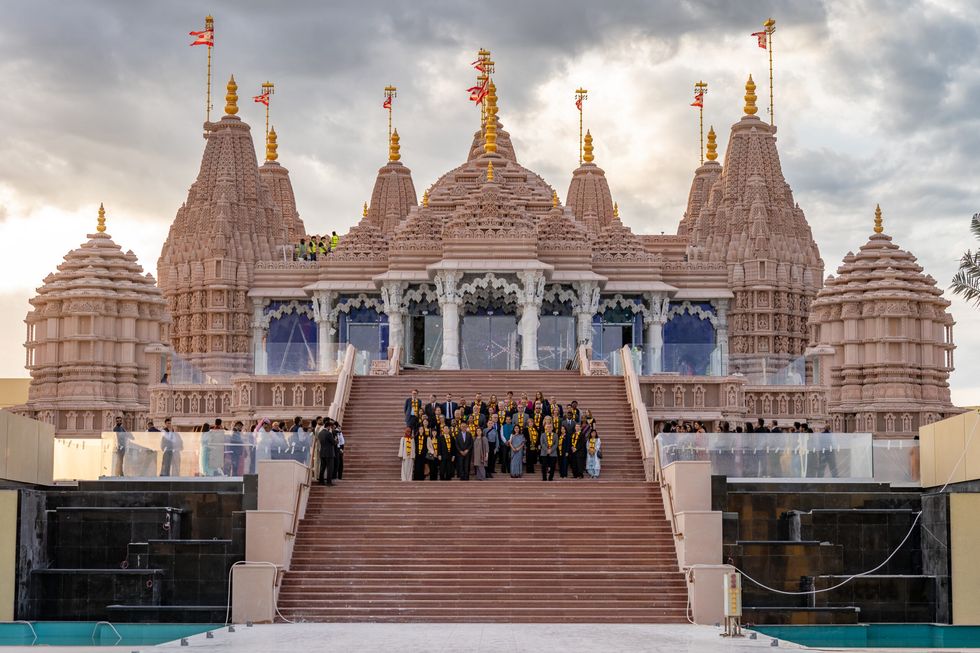
Geopolitical reverberations
The relations between the US and West Asian countries after the 9/11 attacks underwent signifi - cant transformations, and Dr Johny, who also serves as an honorary fellow in west Asian and se - curity studies at the Kochi, Kerala-based think tank Centre for Public Policy Research, thinks the various events over the last two decades have led to a noticeable drift in relations.
“There was a lot of criticism from both sides, looking at this relationship in a more critical light, and the Arab Gulf countries started looking at the US as a country which can wield its power in a more critical fashion in the region, which might not be in favour of the Arab Gulf monarchies,” Dr Johny explains.
The Arab Spring, a series of pro-democracy up - risings that began in 2010, has been a major point of departure, as the US response to these events varied, reflecting the complexity of supporting democratic aspirations while navigating geopoliti - cal interests.
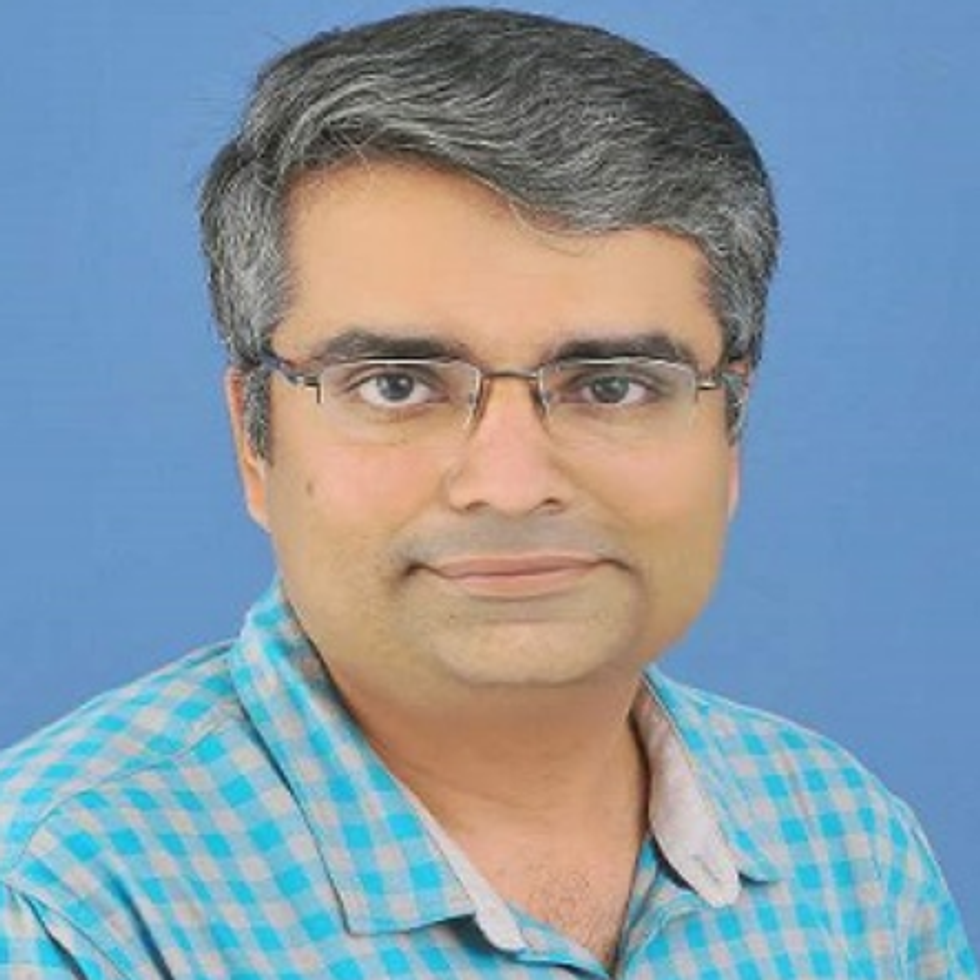
“The US did not take any action to protect (Egypt’s) Hosni Mubarak, and this was seen with alarm by the Arab Gulf states. What they felt is that we cannot always depend on the US and the western countries to protect our interests. We have to look after ourselves,” he adds.
Two factors at this point, Dr Johny identifies, helped India to gain larger influence in the region. One has been the emergence of India and China as largest oil consumers.
“There was a realisation that their bigger consumers are now going to be countries like China and India rather than the West. So they started recalibrating their relationships with the Asian countries, with China, with India. They started realising that these countries are more important for us,” he notes.
The other factor has been the rising influence of Iran in the region, following the conflict in Iraq and civil wars in Syria and Yemen, which was seen as a major threat by the Arab Gulf monarchies.
“They started thinking that ‘see, we have tradi - tionally opposed Israel, but if someone has to op - pose Iran, Iran’s influence, then we have to develop closer relations with Israel’, and India and Isra - el were also forming good relations during this period, and especially after Modi came to power,” Dr Johny says.
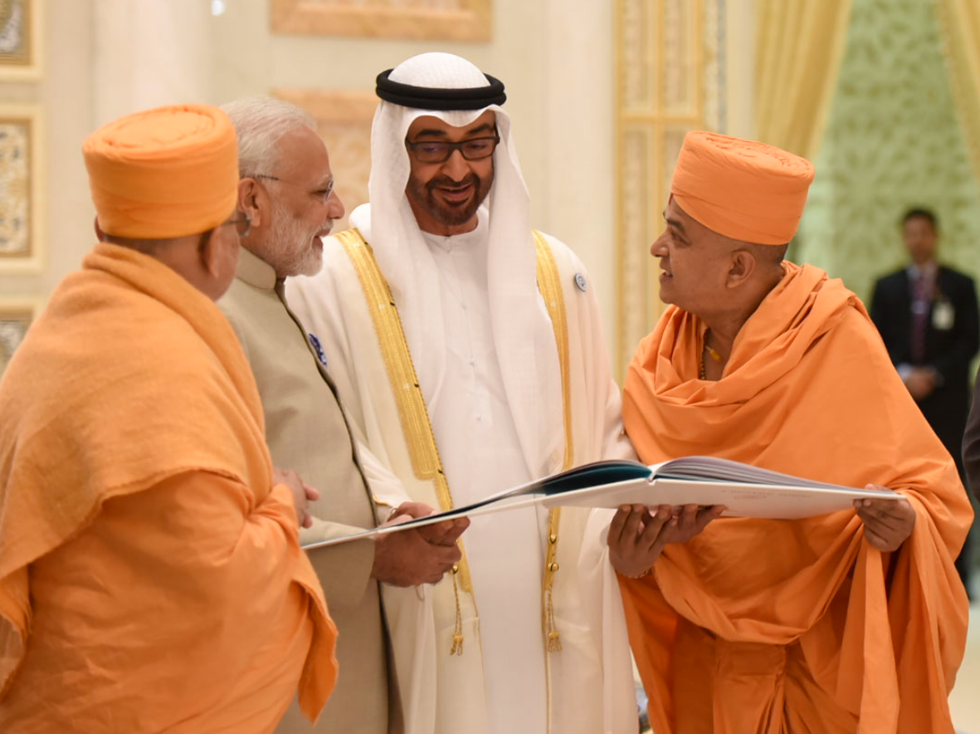
“So a lot of commonalities between these countries came together, and they started growing clos - er to India, to Israel and so on. All of these factors have had an impact on Modi’s diplomacy with the Arab states.”
The diaspora impact
Above all, Indian prime minister Narendra Modi has placed a significant emphasis on leveraging the Indian diaspora as a crucial component of his diplomatic strategy, with the Indian expats often serving as a cultural bridge between India and its host countries.
The BAPS temple in the UAE, which has the largest Indian diaspora population at 3.5 million, according to the World Migration Report 2022, is a case in point.
“The biggest thing is it has brought these two countries to together, much closer, because out of 3.5 million (Indian) people living here, I’m sure at least more than 50 per cent are Hindus. So it has brought the two communities together much closer than what they were before,” Patni says.
He also emphasises that the people are also aware about the economic benefits the temple would bring to the emirate, adding that the interaction between the Hindus and the local community will increase as a result.
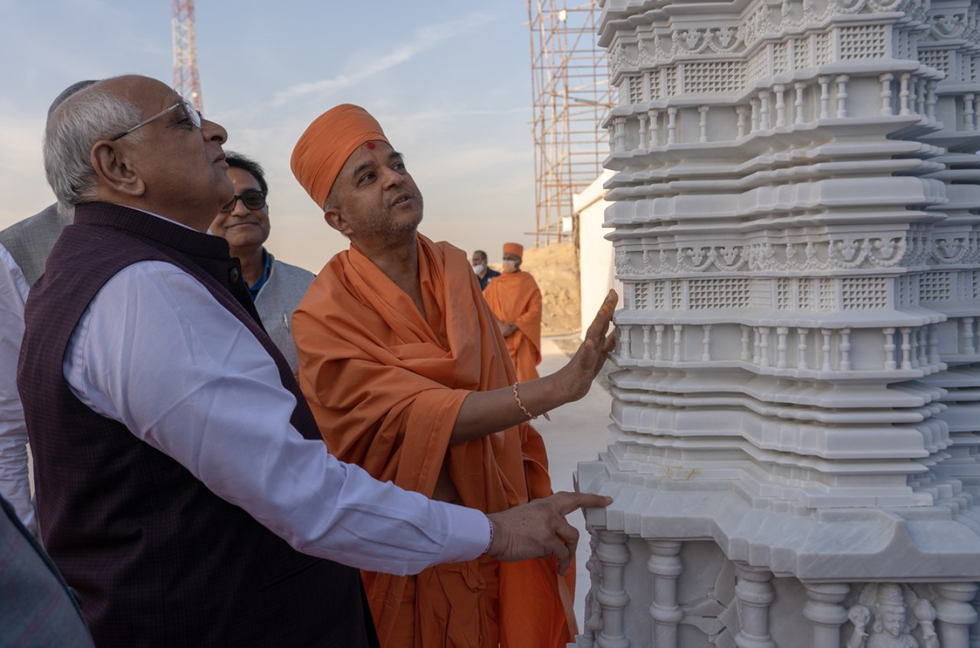
“Because there’s going to be so many businesses running behind it, it’s not just that people go and pray. When they go there, they will go and eat something, they will be a part of the economy. Especially when people are traveling from different parts, they’ll be staying in a hotel; they’ll be using the local transport.”
Patni says that the local community is very excited about the temple and already treating the temple as a major tourist attraction.
“They will be having a lot of visitors and some of them will be especially coming to see the temple. Anybody who comes to Dubai also will be visiting us because we already have one big mosque here (Sheikh Zayed Grand Mosque), which has almost 15,000 visitors every day. It’s going to be a monument for this country, and for the whole region.”
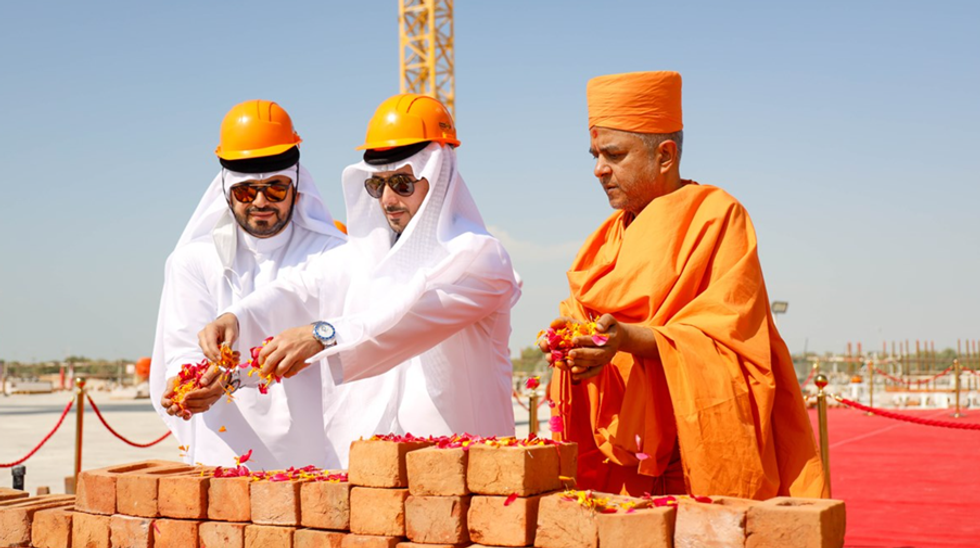
A unique presence
Over the years, the west Asia has become a melting pot of cultures and religions, and Hindu communities have emerged as part of this cultural mosaic, with traders and expatriate workers from India bringing their religious practices and traditions to the region.
The temple project by the BAPS, which has its roots in Gujarat, also symbolises the close historical and cultural ties between the Indian state and the region, as Sindhi, Kutchi and Bhatia trading communities were active in the Gulf monarchies at least from the 16th century onwards, if not before.
Dr Johny notes that there has been a tolerant attitude towards these Hindu trading communities. “There have been good relations with the rulers. In fact, they have been supportive of the tribal sheikhs in what later on became the UAE and the sultans in Oman even financially,” he says.
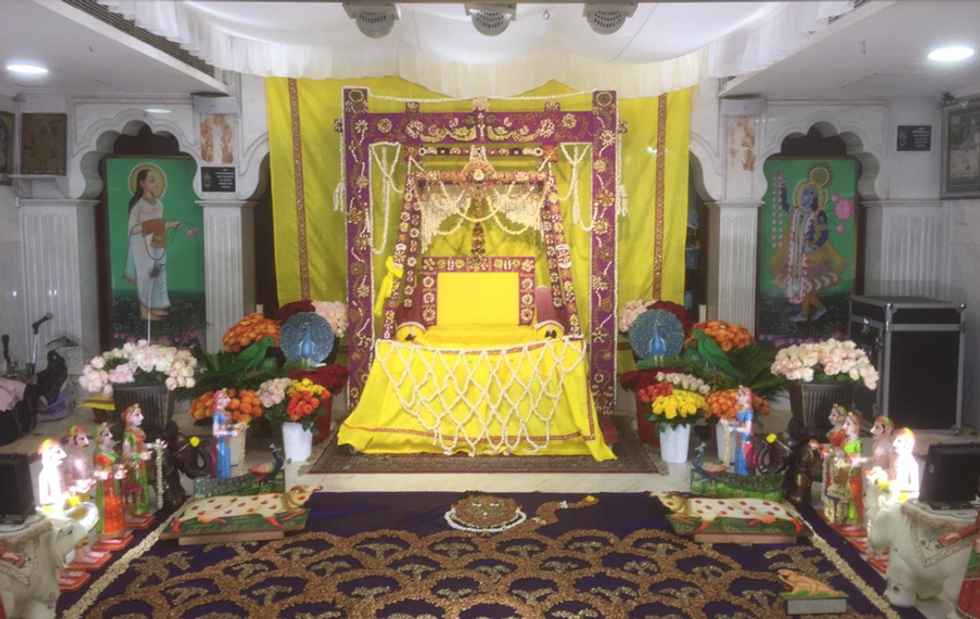
“These new traders, they adopted the culture of the place where they settled, conversing in Arabic, and dressing in Arab costume. For an outsider, sometimes it might even look that they’re part and parcel of the community.”
These communities have established the first temples in the region to cater to their religious and social needs. Like the Lord Shrinathji temple in Manama, the Shiva temple in Muscat, Oman, also known as Motishwar Mandir, has been built by the Thattai Bhatia community, way back in 1909. The Shri Krishna Temple (Shrinathji Haveli) in Dubai was opened in 1902, according to the Mercantile Hindu Community of Thatta (Sind) which manages it, with records showing its existence since 1935.
The temple was rebuilt in 1958 in the land given by HH Sheikh Rashid bin Saeed Al Maktoum, the ruler of Dubai and one of the founders of the UAE. While the temple complex in Bur Dubai was closed its doors to worshippers in January this year, following the opening of the new temple in Jebel Ali, this temple in the same locality has been allowed to remain open, respecting the wish of Sheikh Rashid.
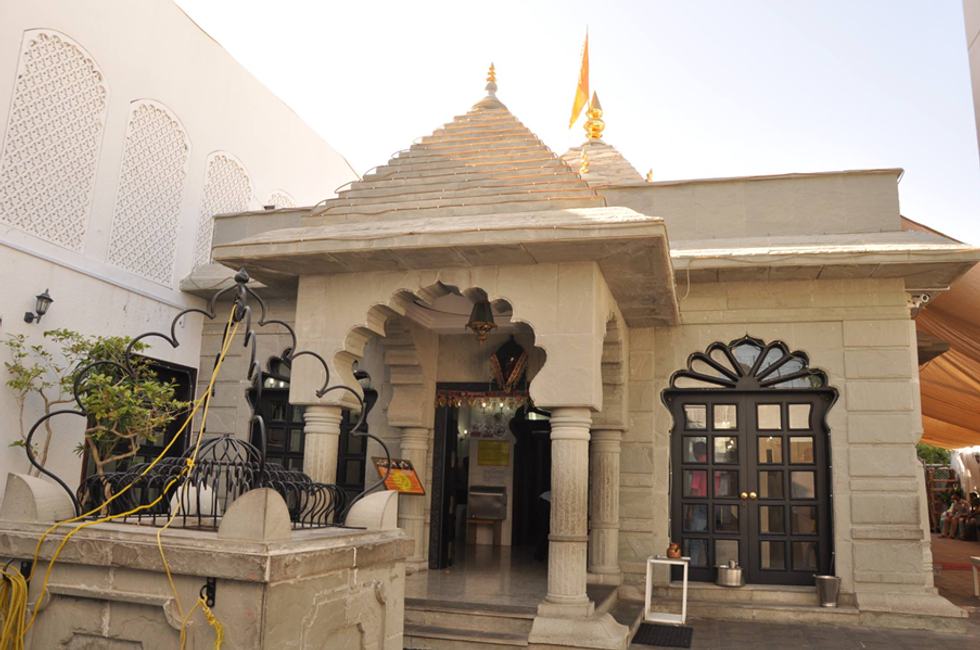
Though Hindu temples in the Middle East are not as prevalent as they are in other regions with a significant Hindu population, they serve as focal points for worship, community gatherings and cultural celebrations. These temples not only provide a spiritual anchor for the Hindu diaspora but also offer opportunities for cross-cultural understanding and dialogue with the predominantly Islamic societies in the region.
In a region often marked by geopolitical tensions, the BAPS temple will serve as a symbol of unity, fostering mutual understanding and respect among different communities. Its presence signifies the UAE’s commitment to creating a multicultural society where individuals of various faiths can coexist harmoniously.
